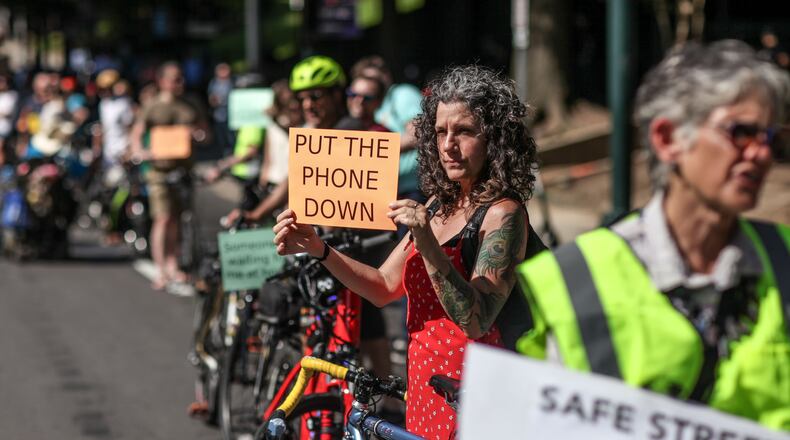Atlanta Mayor Keisha Lance Bottoms signed an executive order on Thursday prohibiting the city’s planning department from issuing additional permits to companies that operate electronic scooters.
Bottoms’ order comes after scooter related accidents killed two people within the span of about a month.
The order does not apply to the nine companies that already obtained permits from the city.
Electric scooters were first deployed by Bird in Spring 2017 in Santa Monica. The devices quickly became so popular that the number of companies operating them skyrocketed and the devices spread all over the world.
Atlanta is one of many cities across grappling with how to regulate scooters. The companies that operate them often drop hundreds of them off without consulting the local government and then wait to see how local officials to react.
Electric scooters arrived in Atlanta in May 2018 and were largely unregulated until the Atlanta City Council approved legislation in January that required scooter operators to obtain permits and submit monthly data to the city about their use.
Nine companies have received permits from the city since the legislation went into effect in February.
Scooter companies argue that they relieve traffic in dense urban areas such as Atlanta. Some data may support that claim.
City Planning Commissioner Tim Keane said in an interview on Thursday that since Feb. 1, riders have taken 2.3 million trips on electric dockless devices, most of which are scooters. The average trip is about a mile.
Based on recent studies, Keane estimated that roughly 700,000 of those trips would have otherwise been done with cars.
“That is a hugely significant number,” Keane said.
Although the city council’s scooter ordinance prohibited the devices from being ridden on sidewalks, the Atlanta Police Department didn’t began ticketing riders until last month. After the ramped up enforcement and forced scooter riders from the sidewalks into the streets, two people died in accidents with vehicles.
Last week, William Alexander, 37, was killed after being run over by a CobbLinc bus at the intersection of 15th and West Peachtree streets.
On Thursday police announced they would not pursue criminal charges against the bus driver. Alexander fell off his scooter and slid under rear tires of the bus, police said.
About the Author
Keep Reading
The Latest
Featured


